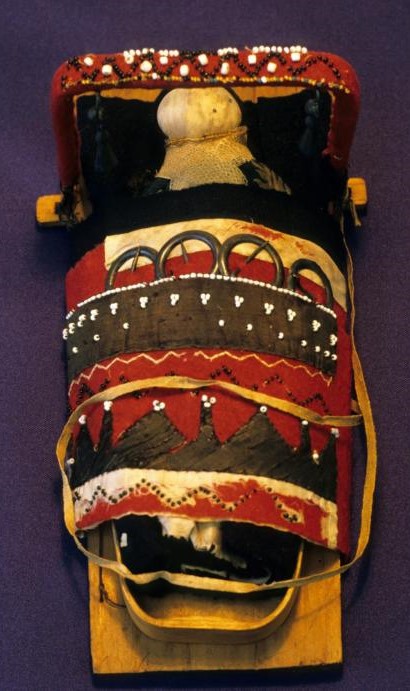by Bradley Clements

September 30 is Orange Shirt Day, an event to remember the children who were taken to Indian residential and boarding schools for over 120 years throughout the Great Lakes region and across Turtle Island. This day honours the Survivors, the families, and every child who never came home. For many who went to Indian residential, boarding, or day schools or who have intimate relations who did, the memory and effects of these systems are felt every day of every year. GRASAC works to reconnect Great Lakes Indigenous individuals, communities, and nations with material and linguistic heritage that culturally genocidal systems like residential schools have sought to separate them from.
There is currently little information in the GKS about this tikinaagan (cradleboard) and doll, but it is believed to have belonged to an Anishinaabe child in the 1800s. It may have been cherished before the time when residential schooling became widely institutionalized, and it represents the care for the young that was learned and practiced throughout life in Anishinaabeg communities. It is telling that tikinaaganan like this were common belongings of children in communities but would not have been permitted in residential schools, which did not teach or practice care for young people or families. Teachings for Anishinaabe community care are embodied in tikinaaganan and can be reconnected with through them, as demonstrated in the wonderful thesis of former GRASAC RA Alexandra Kahsenniio Nahwegahbow, “Springtime in n’Daki Menan, the Homeland of the Teme-Augama Anishnabai: Babies, Cradleboards and Community Wrapping.”
